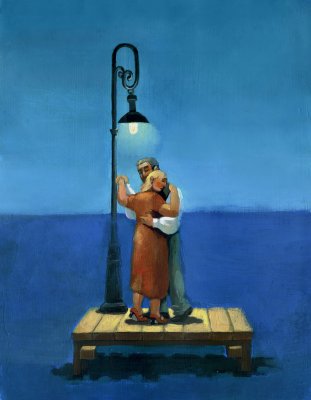 The archetype is an original model that serves as a source of inspiration in an art. That is to say, the archetype is the model that serves as a reference to carry out any copy. In the context of Platonic philosophy, this author proposes a model of the world in which the ideas that are in the supersensible world are the archetype from which the copies of the material and sensible world are made. Therefore, the idea as an archetype is a perfect, incorruptible and eternal model.
The archetype is an original model that serves as a source of inspiration in an art. That is to say, the archetype is the model that serves as a reference to carry out any copy. In the context of Platonic philosophy, this author proposes a model of the world in which the ideas that are in the supersensible world are the archetype from which the copies of the material and sensible world are made. Therefore, the idea as an archetype is a perfect, incorruptible and eternal model.
The archetype according to Carl Gustav Jung
In the psychological context, Carl Gustav Jung also used the concept in his theory to refer to how the human being does not grow and evolve in isolation but is part of a collective environment marked by social and cultural interactions.
Therefore, the subject is also influenced by the archetype of memories and experiences of the first ancestors. This influence results in behavior patterns that affect human behaviors that condition the way in which the mind assimilates images, impressions and sensations when capturing information from reality.
From the author's point of view, there is a collective unconscious that is clearly evidenced in the framework of his theory through the significant value of common myths in different cultures. Myths that precisely explain social ideas and values.
Carl Gustav Jung explains that archetypes are inherited from generation to generation and are manifested through common images in different cultures.
Social archetypes
On the other hand, in the context of literature, the archetype refers to an object, idea or person that, thanks to its recurrent use, has an absolute value as a referent of a meaning. For example, we can say that Romeo and Juliet are the archetype of love and romanticism, a universally known pair of lovers.
 One of the drawbacks of this type of archetype is that it can be very unoriginal thanks to its repetitive use. However, on the positive side, it should be noted that they are easily understood and viewed by society. Since these archetypes are part of the social culture of a people.
One of the drawbacks of this type of archetype is that it can be very unoriginal thanks to its repetitive use. However, on the positive side, it should be noted that they are easily understood and viewed by society. Since these archetypes are part of the social culture of a people.
Another figure of reference in universal literature such as Don Quixote, is also an archetype of idealism.
Photos: Fotolia - salman2 / nuvolanevicata









